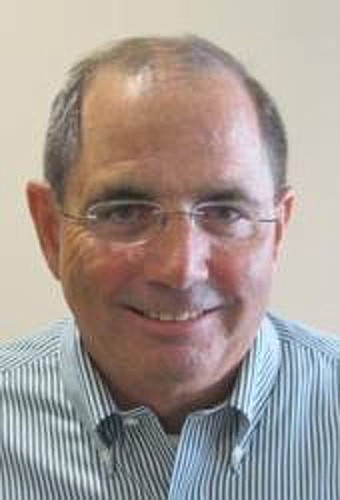
When Mayor Alvin Brown asked the JEA to contribute an extra $40 million each year for paying down pension liability, the utility’s leadership was skittish. City Council members and others questioned how it could be done without raising rates.
As the utility’s board was studying the often-criticized plan, another idea was being developed by a group with ties to Brown. That plan — spearheaded by former council President Matt Carlucci and Charlie Appleby, the retired CEO and chairman of Advanced Disposal — was made public Tuesday.
The latest: JEA borrowing $120 million and giving it to the city upfront. In return, the city would allow the utility to have its own pension plan for its employees. In addition, the utility would receive financial relief each year on the amount it contributes to the city and be allowed to have its own legal counsel, among other tradeoffs.
The city also would borrow $120 million. Those amounts, plus another $60 million in chapter funds, would be applied toward paying down the public safety pension liabilities hanging over the city.
The plans creators say it’s a win for JEA customers — their rates won’t go up. It’s a win for taxpayers — the city has its elusive funding that has been a hang-up in the deal council is reviewing. The remainder of the $1.6 billon unfunded liability would be paid annually through regular city payments.
Tuesday during JEA board meetings, plan details emerged and received some early conceptual support. But also early skepticism.
“If it sounds too good to be true, chances are it’s too good to be true,” said Mike Hightower, JEA board chair.
Some council members showed early concern, too.
“The old plan didn’t work,” said council member Bill Gulliford, chair of the Rules Committee. “The new one isn’t going to work either.”
Carlucci bristles when told of the naysayers. If not the funding source he’s proposing, then he wants to know what council members are coming up with to solve the pension crisis.
The key part of Brown’s former pitch to JEA centered on the utility giving up $40 million extra each year.
Initially it was for 14 years, then dropped to 10 years for a total of $400 million. In return, the utility would get to spin its employees off into their own pension system, saving millions over the coming years.
The JEA board rejected that Tuesday, which was followed by Paul McElroy, JEA CEO, discussing a new partnership.
Worked on over the past few months but finalized in recent days, the utility and city would still swap money, but much more, too. Some details:
• JEA would receive annual relief in the form of scaling back an automatic $2.5 million boost it contributes to the city each year. It provided the city $232 million in 2014, $109.2 million came in the form of a direct contribution. That is slated to rise to $111.7 million next year. Under the agreement, after the deal expires in 2016, JEA would instead have its contribution reduced $2.5 million each year and capped at $100 million for some time.
• It would still get its own pension plan for its employees.
• JEA can have its own legal counsel, although the city’s General Counsel’s word is still final on all issues.
• The utility would receive city support in key economic initiatives such as natural gas.
Carlucci and Appleby worked on the details for several months. Both have ties to Brown, having served on a finance and budget transition committee for the then-incoming mayor. Appleby also was on the Jacksonville Retirement Reform Task Force, whose findings became the basis for the deal Brown and the Police and Fire Pension Fund leadership reached this year.
That deal had the extra $40 million annual payments paying down the unfunded liability, but no funding source.
The task force had suggested a sales tax increase. Brown was adamantly opposed to the increase.
Carlucci said the latest plan should put those concerns to rest.
Hightower told the board the utility would borrow the $120 million and pay it back over 15-20 years using savings from the city. He cited a public policy stance the group took of not accumulating any more debt.
“I am skeptical,” he said. “My skepticism is there.”
The JEA board would have to sign off on any such agreement, as would council — where there is early skepticism about the new agreement, too.
Gulliford called the economics behind the deal “more smoke and mirrors” and said borrowing, only to pay back with revenue, would impact rates.
Richard Clark, chair of the Finance Committee, said he doesn’t blame JEA for trying to help its cash flow. But, curbing the $2.5 million boost it pays the city each year would have dramatic effects to the city’s budget.
He opposes that, having gone through a budget cycle that threatened to close libraries and lay off police officers.
“I don’t feel comfortable as finance chairman and as a long-standing member of this council with leaving future councils less money to pay their bills,” he said.
Gulliford and Clark’s committees are the two reviewing the pension deal.
Carlucci said he will do what he can to help sell the idea, but Brown will have to be at the forefront pitching the solution.
“The mayor is going to have to be a little bit of a salesman,” Carlucci said of Brown.
@writerchapman
(904) 356-2466